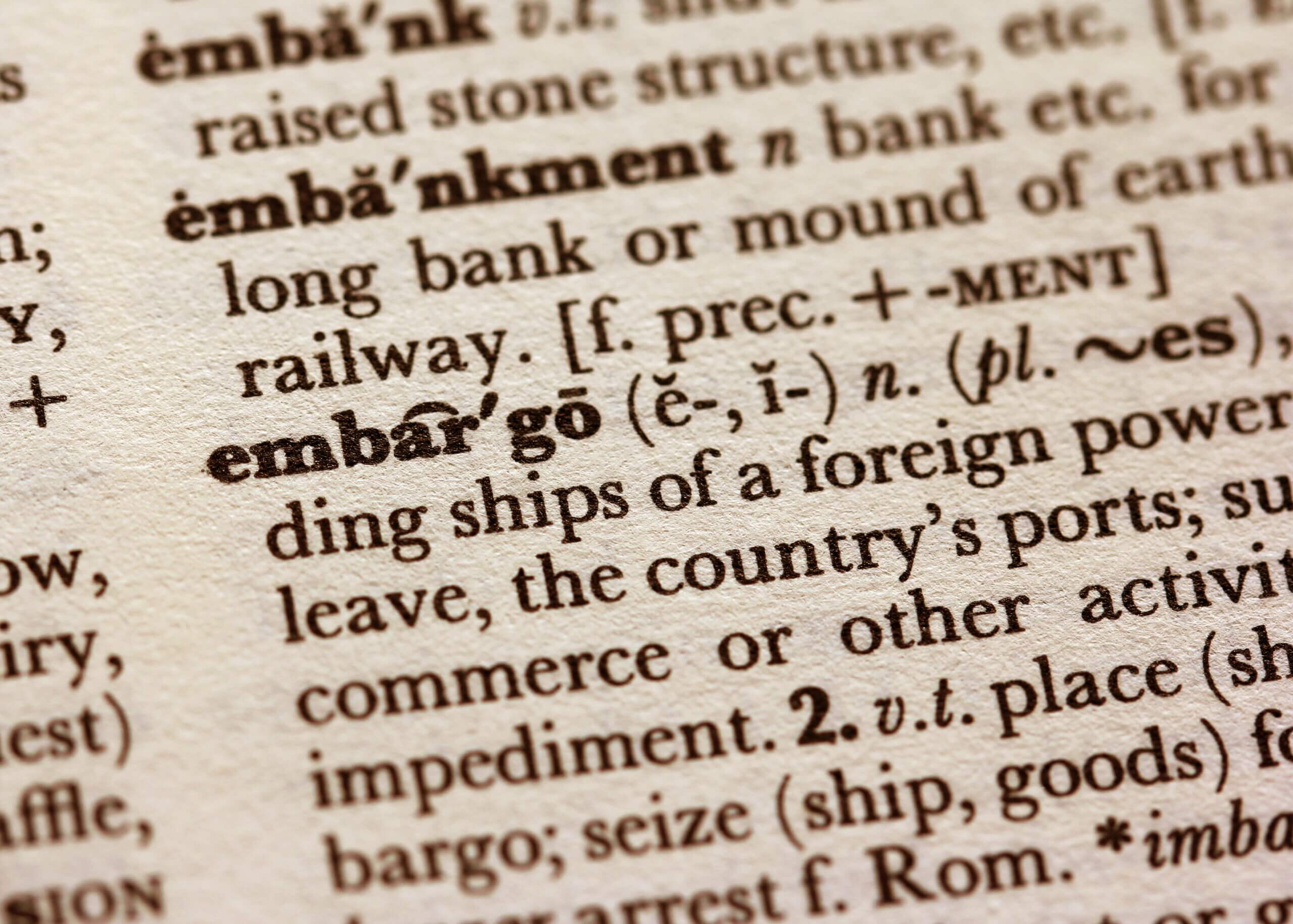OFAC (Office of Foreign Assets Control) heads the United States sanctions compliance program.
As a part of the U.S. Treasury Department, they take a risk based approach in the search for red flags raised by an industry or nation.
Besides their Specially Designated Nationals (SDN list) and Blocked Persons list, OFAC sanctions affect various entities.
Their comprehensive internal controls have the power to decrease international traffic to a named entity.
OFAC regulations deal with foreign asset control, imports, exports, and transactions between intended specially designated nationals.
Let’s explore why defense trade controls are necessary in the first place.
What Is an Embargoed Country and Why Are There Sanctions Against It?
Sanctioned nations have been isolated by the global community due to their government’s refusal to comply with international norms, or aggressive actions towards other countries.
A sanctions compliance program involves punitive measures imposed by one or more countries aimed at changing its behavior.
There are many different types of sanctions programs, but the most common are economic sanctions, which involve restricting or banning trade with the country in question. Other types of sanctions regulations include travel bans and arms embargoes.
Why Do Countries Impose Trade Embargoes?
There are a variety of reasons why countries may choose to embargo another nation.
In certain situations, it is an effort to pressure the government to change its policies or behavior. The United States has placed economic sanctions on Iran to encourage their abandonment of nuclear proliferation activities.
Other times, embargoes are imposed as a form of punishment for a country’s actions. For example, the United Nations placed an arms embargo on Libya after the country’s government orchestrated a civilian massacre in 1996.
What Are the Effects Of a Compliance Program?
Countries subject to sanctions programs experience a significant impact on their economy. Besides inflation, unemployment, and shortages of goods, they can also make it difficult for businesses to operate.
More importantly, compliance can make it difficult for people to access essential goods like food and medicine.
What are some examples of embargoed countries?
The United States has used targeted sanctions on:
- Iran
- Cuba
- North Korea
- Myanmar
- Syria
- Zimbabwe
How Do Embargoes and Sanctions Affect the Citizens of a Country, and How Does This Impact the Global Economy as a Whole?
The effects of embargoes and sanctions can be far-reaching and often have a negative impact on innocent citizens.
In some cases, regulations have been accused of unintended consequences.
This happened when the United Nations’ food program was forced to cut off assistance to North Korea in 2009 due to sanctions. Some experts believe this led to a significant increase in hunger and malnutrition.
The global economy can also be impacted by embargoes and sanctions. For example, if a major trading partner imposes an embargo, it can cause disruptions in the supply chain and lead to higher prices for consumers.
What Are Some Criticisms of Compliance?
Critics of trade restrictions argue that they often fail to achieve their desired objectives and end up harming civilians. They also argue that they can be used as a political tool, as foreign countries may be reluctant to trade with another that has these regulations.
Some experts also argue that certain sanctions can be ineffective or even counterproductive. To prove this point, the nuclear program of North Korea accelerated after US sanctions in 2006.
Are Embargoes and Sanctions Effective in Achieving Their Goals, or Could There Be Other Methods That Would Be More Successful in Achieving These Objectives?
Sanctions can be a powerful tool, but they often fail to achieve their desired objectives. Sometimes they may even make the situation worse.
Alternatives to sanctions include:
- Diplomacy
- Economic incentives
Rather than imposing a compliance program, the United States could engage in direct negotiations with Iran in an effort to persuade the country to abandon its nuclear program.
Another option is to provide economic assistance to countries that agree to make changes, such as reducing their carbon emissions. This approach has been used with some success in the past, such as when the United States provided aid to Russia after it agreed to reduce its nuclear arsenal.
How Do Different Countries Respond to Embargoes and Sanctions, and What Are the Consequences of This Response for Both the Embargoing and Sanctioned Countries Involved?
Countries subject to embargoes and sanctions respond differently. Some may choose to comply with the demands, while others may defy the embargo and continue trading with the sanctioned country.
There can be a number of consequences for both the embargoing and sanctioned countries involved. If a country defies an embargo, it can face trade penalties or even be cut off from the global economy.
On the other hand, complying with an embargo could cause it to lose out on important trade opportunities. If the U.S. sanctions Iran, American companies would be unable to do business there, which could put them at a competitive disadvantage.
Reidel Law Firm Addressing Risks and Export Restrictions
As experts in international trade law, we can help you handle the legal aspects of any OFAC issues.
Our international trade law division also supports:
- Import Compliance
- Export Compliance
- Litigation before the Court of International Trade (Section 337, anti-dumping/countervailing, and other trade related cases)
- Trade Compliance Audits and Training
Call Reidel Law Firm today at (832)510-3292 or fill out our form to see how we can help your business expand internationally.







